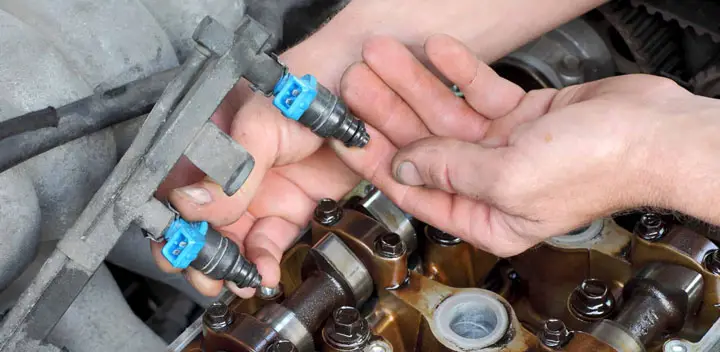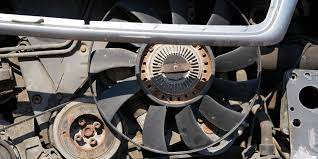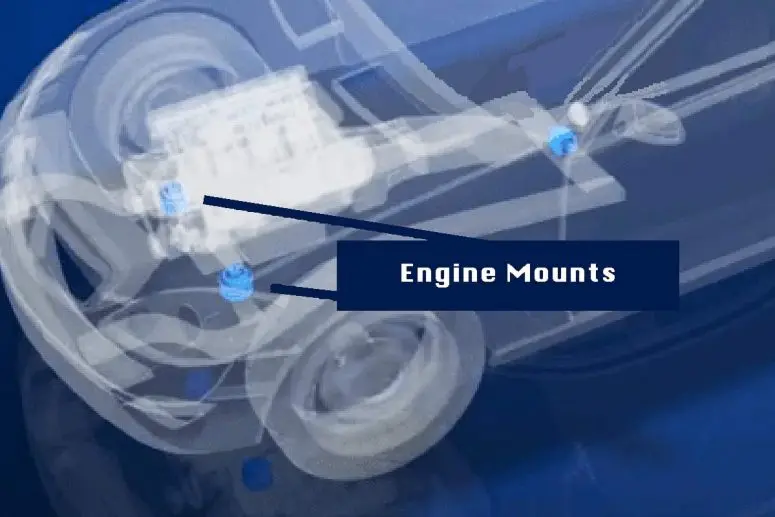The Jeep Makes Noise After Turning Off? Solve The Mystery IN 2023
Jeeps are known for their ruggedness and durability, but they can also experience a variety of noises after being turned off. These noises range from simple ticking to more complicated, growling noises.
If your Jeep makes noise after turning off, you should check the transmission or transaxle. A worn or damaged transmission or transaxle can cause a growling, whining, or humming noise. It can help identify the cause and ensure necessary repairs are made to keep the Jeep running smoothly.
Jeep owners take pride in their vehicles and are often very knowledgeable about their capabilities and limitations. However, it can be concerning and difficult to diagnose when a Jeep makes a strange noise after turning off the engine.
In this article, we will indicate some common causes of a Jeep making noise after being turned off and provide solutions to fix the problem.
Table of Contents
Identifying The Source Of The Noise After Turning Off:
The first step in resolving a Jeep that makes noise after turning off is to identify the source of the noise. Try to determine the location of the noise and what it sounds like.
It can help you determine the cause of the problem and give a mechanic a better understanding of what needs to be fixed. Some common noises that Jeeps can make after turning off include:
1. Engine Ticking:
The most common cause of a Jeep making noise after being turned off is the engine ticking. It is usually a result of normal valve and injector noise and is most noticeable after the engine is turned off.

This noise can continue for a short time and is usually not a cause for concern. However, if the ticking noise is excessive or accompanied by other symptoms, a mechanic must inspect the vehicle.
2. Exhaust System:
Another common cause is a damaged or poorly-fitted exhaust system. The exhaust system can cause a ticking or rattling noise if it hits the body or chassis of the Jeep. This noise can be easily fixed by adjusting the exhaust system or replacing any damaged parts.
3. Heat Shields:
Heat shields are designed to protect the engine and surrounding components from heat and are located near the exhaust system.
Loose or damaged heat shields can cause a rattling noise, especially when the engine is hot and expands. A mechanic must inspect the heat shields and tighten or replace any damaged parts to fix this problem.
4. Drive Belts:
Drive belts are responsible for driving the various components of the engine, such as the alternator and water pump.
Loose or worn drive belts can cause a squeaking noise after the engine turns off as the belts rotate and cool down. Inspect the drive belts and tighten or replace any damaged parts to fix this problem.
5. Engine Fan:
The engine fan is responsible for cooling the engine and can cause a whistling or whining noise after turning off, especially if the fan bearings are worn or damaged.

To fix this problem, inspect the engine fan and replace any worn or damaged parts.
6. Serpentine Belt Tensioner:
The serpentine belt tensioner is responsible for maintaining the tension on the drive belts and can cause a knocking or rattling noise after the engine is turned off as the tensioner continues to spin and cool down. To fix this problem, inspect the serpentine belt tensioner and replace any worn parts.
7. Engine Mounts:
Engine mounts are responsible for securing the engine in place and can cause a thumping or knocking noise after turning off, especially if the engine shifts or moves excessively. To fix this problem, inspect the engine mounts and replace any worn or damaged parts.

8. Transmission or Transaxle:
A worn or damaged transmission or transaxle can cause a growling, whining, or humming noise after the engine is turned off. To fix the issue, you will need to inspect the transmission or transaxle and replace any worn or damaged parts.
Drawbacks Of Jeep Makes Noise After Turning Off?
- Decreased Driving Comfort: One of the biggest drawbacks of noise after turning off is decreased driving comfort. Persistent noise in the vehicle can be very distracting and annoying, making it difficult to enjoy driving.
- Reduced Resale Value: A Jeep that makes excessive noise after turning off can be a red flag for potential buyers. It can reduce the vehicle’s resale value, making it difficult to sell.
- Safety Concerns: In some cases, a Jeep that makes noise after turning off could indicate a more serious issue that could affect the vehicle’s safety. For example, a knocking noise could signal a problem with the engine or suspension system.
- Increased Maintenance Costs: If a mechanical issue causes the noise, fixing it may require significant repairs. It can result in increased maintenance costs and reduced reliability of the vehicle.
- Impaired Driving Performance: In some cases, it could indicate a problem with the engine or transmission, which can affect the vehicle’s driving performance. For example, if a worn or damaged drive belt causes noise, the engine may not perform as efficiently as it should.
- Reduced Fuel Efficiency: If an issue causes noise with the engine, it could result in decreased fuel efficiency. It can be a major drawback for Jeep owners looking to maximize their vehicle’s fuel economy.
Things To Follow To Avoid Jeep Noise After Turning Off?
- Regular Maintenance: Regular maintenance is one of the best ways to avoid jeep noise. It includes regular oil changes, tire rotations, and inspections of the vehicle’s various systems and components.
- Proper Engine Idling: Avoiding excessive engine idling, especially immediately after turning off the engine, can help prevent noise from developing.
- Avoiding Overloading the Vehicle: Overloading the vehicle can put extra strain on the engine and other systems, contributing to the development of noise after turning it off.
- Regular Inspection of Engine Components: Regular inspection of the engine and its components can help identify potential issues before they become more serious. It can include checking the engine mounts, drive belts, and exhaust system.
- Addressing Mechanical Issues Promptly: If any mechanical issues are detected, they should be addressed promptly to prevent further damage and reduce the likelihood of jeep noise.
- Avoiding Hard Driving Conditions: Avoiding difficult Driving conditions, such as aggressive acceleration and sudden stops, can help prevent noise from developing.
- Using High-Quality Parts and Fluids: High-quality parts and fluids can help prevent wear and tear on the engine and other systems.
- Regular Engine Tune-Ups: Regular engine tune-ups can help maintain the engine’s performance and reduce noise after turning it off. It can include checking and adjusting the valve clearance, timing belt, and ignition system.
- Proper Engine Break-In: Proper engine break-ins can help reduce it. It includes avoiding aggressive Driving for the first few thousand miles and gradually increasing the engine RPM over time.
Frequently Asked Question:
1. Can A Jeep Noise Indicate A Serious Issue?
Yes, sometimes, a jeep noise after turning off can indicate a serious issue, such as a problem with the engine or suspension system. It is important to have a vehicle inspection if you suspect a problem.
2. What Is The Most Common Cause Of Jeep Noise?
One of the most common causes of jeep noise after turning off is the engine ticking, which is caused by the normal contraction and expansion of metal components in the engine.
3. Can A Loud Jeep Noise Reduce The Resale Value Of The Vehicle?
Yes, a loud jeep noise after turning off can reduce the vehicle’s resale value, as it is often a red flag for potential buyers. Fixing the issue can help prevent further damage and maintain the vehicle’s resale value.
Final Thought:
Jeeps can make various noises after being turned off. If you hear a ticking or rattling noise, the exhaust system may be hitting the body or chassis of the Jeep.
Sometimes, the muffler or resonator may need to be replaced if damaged or worn. These necessary repairs are made to keep the Jeep running smoothly.
Avoiding jeep noise after turning it off requires regular maintenance, careful driving habits, and prompt attention to any issues.
Regular maintenance, such as oil changes and tire rotations, can help prevent wear and tear on the engine and other systems, reducing the likelihood of noise after turning off.
Similar Post:






![Jeep Radio Won’t Turn Off [How To Solve This In 2023]](https://garagegrabber.com/wp-content/uploads/2023/01/jeep-radio-wont-turn-off-768x402.jpeg)
